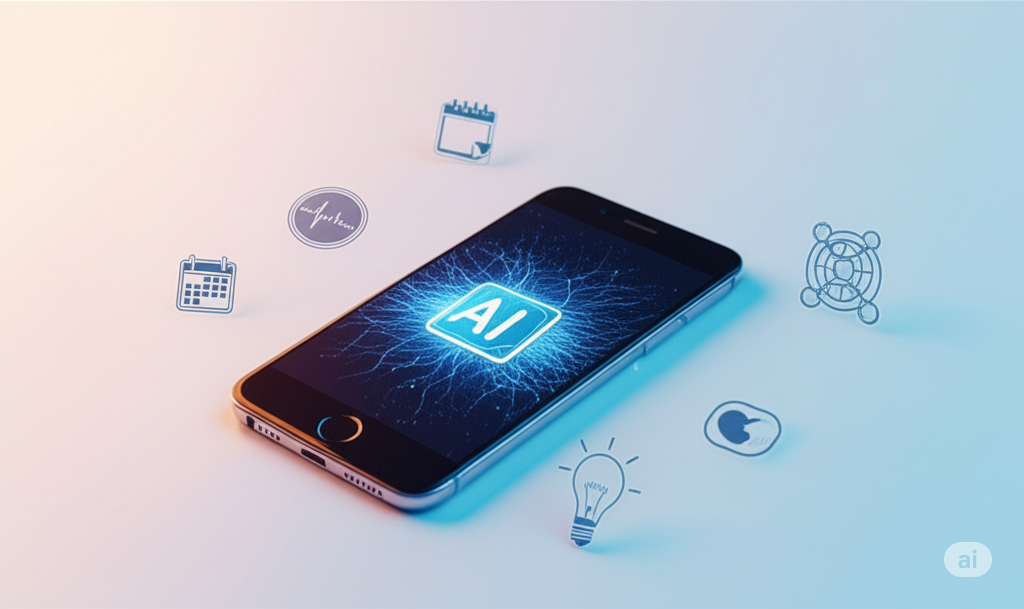Quantum Computing: Is 2026 the Year It Starts Changing Our World?
The term "quantum computing" has been buzzing in tech circles for years, promising a revolutionary leap in processing power that could redefine industries and solve problems currently beyond our reach. As we stand in May 2025, the question on many minds is: Is 2026 the year we'll start seeing tangible quantum breakthroughs that begin to change our world? This article will delve into quantum computing basics, explore its incredible potential, and offer a realistic perspective on what to expect from these next-gen computers in the near future.
Demystifying the Quantum Realm: What is Quantum Computing Explained (Simply)
To understand the future of computing, we first need a basic grasp of what makes quantum computers different.
- Classical vs. Quantum: Your everyday computer (a classical computer) uses "bits" to process information. A bit can represent either a 0 or a 1. Quantum computing, on the other hand, uses "qubits."
- Qubits and Superposition: Thanks to a quantum mechanical principle called "superposition," a qubit can represent a 0, a 1, or a combination of both at the same time. Imagine a spinning coin – it's neither heads nor tails until it lands. A qubit is somewhat like that spinning coin until it's measured. This ability allows quantum computers to explore many possibilities simultaneously.
- Entanglement: Another mind-bending quantum phenomenon is "entanglement." When qubits are entangled, they become interconnected in such a way that the state of one instantly influences the state of the other, no matter how far apart they are. This allows for complex correlations and even more powerful computations.
Essentially, quantum computers aren't just faster versions of the computers we have now; they work in a fundamentally different way, making them exceptionally good at solving certain types of complex problems that would take classical computers an impractical amount of time (think billions of years) to crack.
The Promise of Next-Gen Computers: Potential Applications of Quantum Computers
The unique capabilities of quantum computers open doors to breakthroughs in numerous fields:
- Medicine & Drug Discovery: Simulating molecules with incredible precision is a task tailor-made for quantum computers. This could dramatically accelerate the discovery and development of new drugs and personalized medicines, and help us understand complex diseases like cancer or Alzheimer's by modeling biological systems more accurately.
- Materials Science: Quantum simulations can help design and discover new materials with specific, desirable properties – think more efficient solar cells, better batteries, stronger yet lighter composites for aerospace, or even self-healing materials.
- Complex Problem-Solving & Optimization: Many real-world challenges involve finding the best possible solution out of a vast number of options (optimization problems). Quantum computers could revolutionize logistics (e.g., optimizing delivery routes), financial modeling (e.g., better risk assessment, portfolio optimization), and supply chain management.
- Artificial Intelligence (AI) & Machine Learning: Quantum algorithms could significantly speed up machine learning processes, enabling the development of more powerful AI models capable of handling much larger and more complex datasets.
- Climate Change Modeling & Environmental Science: Understanding and predicting climate change involves incredibly complex simulations. Quantum computers could help create more accurate models, leading to better strategies for mitigation and adaptation. They could also aid in discovering new catalysts for carbon capture or more efficient energy production.
Quantum Breakthroughs 2026: Are We on the Cusp of Tangible Change?
As of May 2025, the field of quantum computing is vibrant with research and development. Companies like IBM, Google, Microsoft, and various startups are making significant strides in building more stable and powerful quantum processors. We've seen demonstrations of "quantum advantage" (sometimes referred to as "quantum supremacy"), where a quantum computer has performed a specific, often contrived, task faster than the most powerful classical supercomputers could.
So, what can we realistically expect for tangible quantum breakthroughs 2026?
- Not in Your Laptop (Yet): It’s highly unlikely you'll have a quantum-powered smartphone or laptop in 2026. Quantum computers are currently large, incredibly sensitive, and require specialized environments (like ultra-low temperatures).
- Progress in Research & Specialized Applications: 2026 will likely see continued progress in increasing the number of stable qubits, improving error correction (a major hurdle), and developing more sophisticated quantum algorithms. We might see more refined demonstrations of quantum advantage on problems with real-world relevance, particularly in chemistry, materials science, and optimization. IBM, for instance, has a roadmap aiming for a demonstration of scientific quantum advantage and a fault-tolerant module by 2026.
- Increased Cloud Access: More researchers and specialized industries will likely gain access to quantum computing capabilities via cloud platforms, allowing them to experiment and develop applications without needing to build their own quantum hardware.
- Early-Stage Commercial Use Cases: Some forward-thinking companies might begin to see early, niche applications in areas like drug discovery or financial modeling where even a slight quantum edge could be significant. However, widespread commercial impact is still further down the road.
The United Nations has even designated 2025 as the International Year of Quantum Science and Technology, highlighting the growing global focus and investment in this field, which will undoubtedly spur progress leading into 2026.
The Broader Impact of Quantum Technology
While widespread, everyday applications might still be a decade or more away, the long-term impact of quantum technology is expected to be transformative. However, significant challenges remain:
- Decoherence: Qubits are extremely fragile and lose their quantum properties easily due to environmental "noise" (like vibrations or temperature fluctuations). Maintaining coherence is a major engineering challenge.
- Error Correction: Quantum computations are prone to errors. Developing effective quantum error correction codes is crucial for building fault-tolerant quantum computers.
- Scalability: Building systems with a large number of high-quality, interconnected qubits is incredibly complex.
Navigating the Quantum Future
The journey towards practical, large-scale quantum computing is a marathon, not a sprint. It requires sustained research, international collaboration, and significant investment. Developing a "quantum-ready" workforce, with individuals skilled in quantum physics, computer science, and engineering, will also be vital.
Conclusion: A Year of Significant Strides
So, is 2026 the year quantum computing starts changing our world? It's more likely to be a year of significant and exciting strides towards that change, rather than a complete revolution in our daily lives. Expect to see continued advancements in research, more sophisticated experimental systems, and perhaps the very early seeds of commercial applications in highly specialized fields. The future of computing is undeniably quantum, and while the full impact of quantum technology will unfold over many years, 2026 will be a crucial chapter in this ongoing scientific and technological adventure. The journey of these next-gen computers is one to watch with anticipation.
Please login to leave a comment.


 Rakesh Rajbhat
Rakesh Rajbhat




